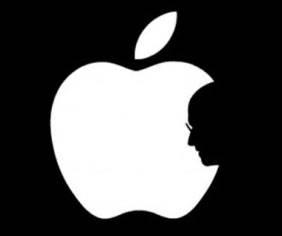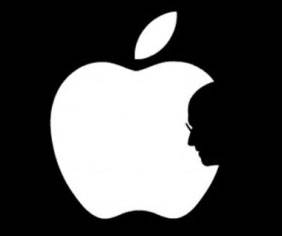
iWas. The removed ambivalence of Steve Jobs

Now being partially lifted both the incense curtain and the unanimous and muffled condolences around the death of Steve Jobs, it is necessary to stop and critically mull over his career and his legacy on our time, and learn the appropriate lessons.
Steve Jobs was a capitalist, in the most literal meaning of that term: he managed to appropriate the creative wealth of the US’ seventies and eighties counterculture and cooperation, and exploit it to create and spread market needs and trends. By navigating his way through cyber-elites and masses – with remarkable ability – and contributing to the loss of halo of the former and the generalized put to work of the intelligence of the latter, through ever more simplyfied interfaces.
Specifically, the crossing of the Homebrew Computer Club scene (a forge of ICT legends, from Richard Stallman to Lee Felsenstein) was an essential prerequisite for Jobs to play head-on in the following phase of socialization of the web. Many in the hacker scene attack Steve Jobs, by accusing him of selling off the amateur community’s innocence to the big business – and taking advantage himself of the decisive technical contribution of Apple’s co-founder Steve Wozniak.
A factual evidence, even more when it comes to comprise it into a gradual and generalized process of capture and massification of the IT experts’ desire among the general public – which will bring about the decline of the autonomy of the so-called cybersoviets.
But the question is: could these impulses had been differently socialized? Why did it go otherwise?
By a twist of fate, Jobs’ great homecoming to the helm of Apple takes place at the end of the nineties, in conjunction with the rise of open source as a free software development and marketing strategy; a historical process that doesn’t leave the man of Cupertino idle, as proven by the Mac OS X implementation. But, whereas open source eases the circulation of code (certainly in a self-interested and ambiguous way), the new Apple, with the coming of the new digital goods consumption devices, is keen to entrench itself in a closed approach. IPod, iPhone, iPad: a letter, that “i” prefix, is enough to bestow a collective identity and background upon particularity – individualism, and a personal and much-sought product.
An identity and a collective background subject to the IT institutions made in Cupertino: iTunes, AppStore, iCloud. The “Walled Gardens” in which lie, captive and commercialized, those digital goods previoulsy available through peer-to-peer channels – through which they freely flew.
The aura of Steve Jobs also derives from this; by the capacity of reframing “closeness” as “exclusivity”; and by shifting the attention focus around a new closed gadget from the “paranoia” of the manufacturer to the “curiosity” of the consumer. The logo of the apple so became a catalyst for positive emotions; and branding new devices with it made possible the outburst of previous capitalist implementations which were either deemed as niche (the tablet market, later to be dominated by the iPad) or met with general indifference, if not distrust (iCloud).
With this, we don’t want to stop and repeat “yes, but he copied that invention from someone else” (which is obvious, when thinking about the adoption of the Xerox-developed interfaces and technologies by Jobs; still, we always assumed the production of innovation to be a collective process, being it affected by various connections and influences), but to emphasize how the socialization of innovation by Apple (and in its own way) was conveyed through an extraordinary capacity of reframing the present, inherent to the messianic power of its founder. That is built upon a strong organization of communication: leadership (centralization of Apple’s internal management functions on Jobs himself), marketing (Apple usership as a status symbol), aesthetics (design and symbolism), all of these interrelated in the spectacular construction of mass events as the keynotes.
So, the redundancy of innovation is emphasized in hindsight (the guys at Xerox didn’t really had any use for a graphical interface), Iphone’s flaws fade into the background (by attacking those of other smartphones) or become challenging hacking contests, Foxconn‘s Chinese worker-slaves disappear, timely greenwashing practices satisfy the environmentalist concerns. It is not easy for any critical voice to deconstruct these steps: for example Phonestory, an edugame by Molleindustria for Iphone and Android that illustrated the smartphones’ production chain and their tracking functionalities, was removed from the Apple Store without notice.
But the most accomplished goal of Steve Jobs has been the creation of the very first emotional brand of the information age around its brainchild: to relentlessly push it towards the market’s core, until it became world’s top hi-tech company for market capitalization in 2010. In a not so different way from what Henry Ford did during the industrial age.
All of this started with the 1984 Macintosh commercial, released during one of the most intense peaks of the Cold War; in which there was no pretension of selling a product, rather than freedom from the big brother of mass consumption. The fact that Jobs’ personality cult and his conception of the market created equally coercive power relations faded into the background as, meanwhile, clients turned into fans, and penny-wise buyers into overexcited zealots. And the fact that the operation succeeded by binding emotions and brains of the knowledge workers to the Apple-made machines – with the tried and tested blend of persistent and ephemeral, design and spectacle – couldn’t be more explicative.
A business model both revolutionary and deeply devoted to safeguard the existing situation; that brings an end to any claim of anarchy and universality of the web, through the imposition of economic relations mediated into the narrow spaces of the “walled gardens”. It is no accident that, in these hours, the passing of Jobs is commented by many in the major cinema and publishing industries. Being themselves saved from collapse, if not confirmed in their role of powerful brokers – thanks to the agreements made by paying an hefty price to the Cupertino company. Not to mention the worldwide canonization of Apple’s leader by a political class on its death throes, and unable to wield the same messianic power over its own subordinates in turmoil.
Rather than list the praises up above, is most important to audit the voices from below, even when overflowing with false consciousness. Obituaries by his most devoted fanboys, for example, compared the importance of Jobs’ apple to that of Newton and to the forbidden fruit of Eden. We can spot in these outbursts the reflection of an aesthetics of knowldege and death, from a change in the perception of the world to a consciousness of the passing. Apple’s founder himself, in his famous Stanford speech, hints to the function of death as a media of motivation (in front of individual time) and renewal (in front of universal time). A most powerful emotional and symbolical construct. Bent, in these hours, through the traditional media (among which we find the glossy covers of Wired and The Economist) and the internet, to celebrate, consecrate and reproduce the simulacrum of the self made man Steve Jobs. And, the perpetuation of the American dream, the Californian ideology and the proprietary individualism on its background, along with it.
In this way the passing of Apple’s CEO it is not, simply and cynically, “Apple’s latest and biggest roadshow” – as some people labeled it. It is that of a whole economic, cultural and relational model, instead.
Such is the challenge. Informational capitalism loses today one of its spearheads, a great persuasor and a most skillful manipulator of common sense in regard to the quality of today’s production and consumption relations.
Demystifying Jobs by emphasizing his ambivalence: that is the first step towards the disclosure of the brutality of economic relations of the world he contributed to build. And this time, it is up to us to bite the apple of collective knowledge.
InfoFreeFlow (@infofreeflow) for Infoaut
Ti è piaciuto questo articolo? Infoaut è un network indipendente che si basa sul lavoro volontario e militante di molte persone. Puoi darci una mano diffondendo i nostri articoli, approfondimenti e reportage ad un pubblico il più vasto possibile e supportarci iscrivendoti al nostro canale telegram, o seguendo le nostre pagine social di facebook, instagram e youtube.




















